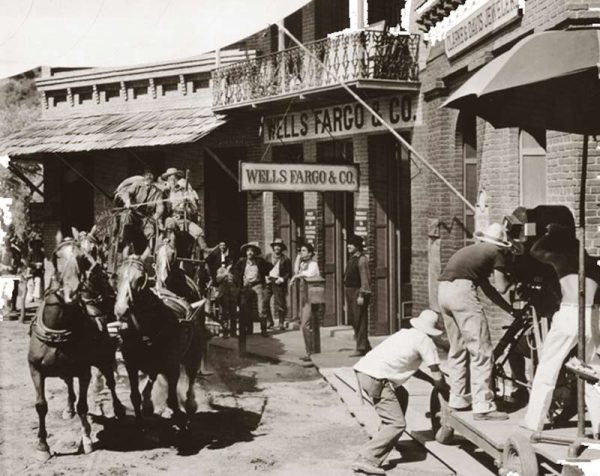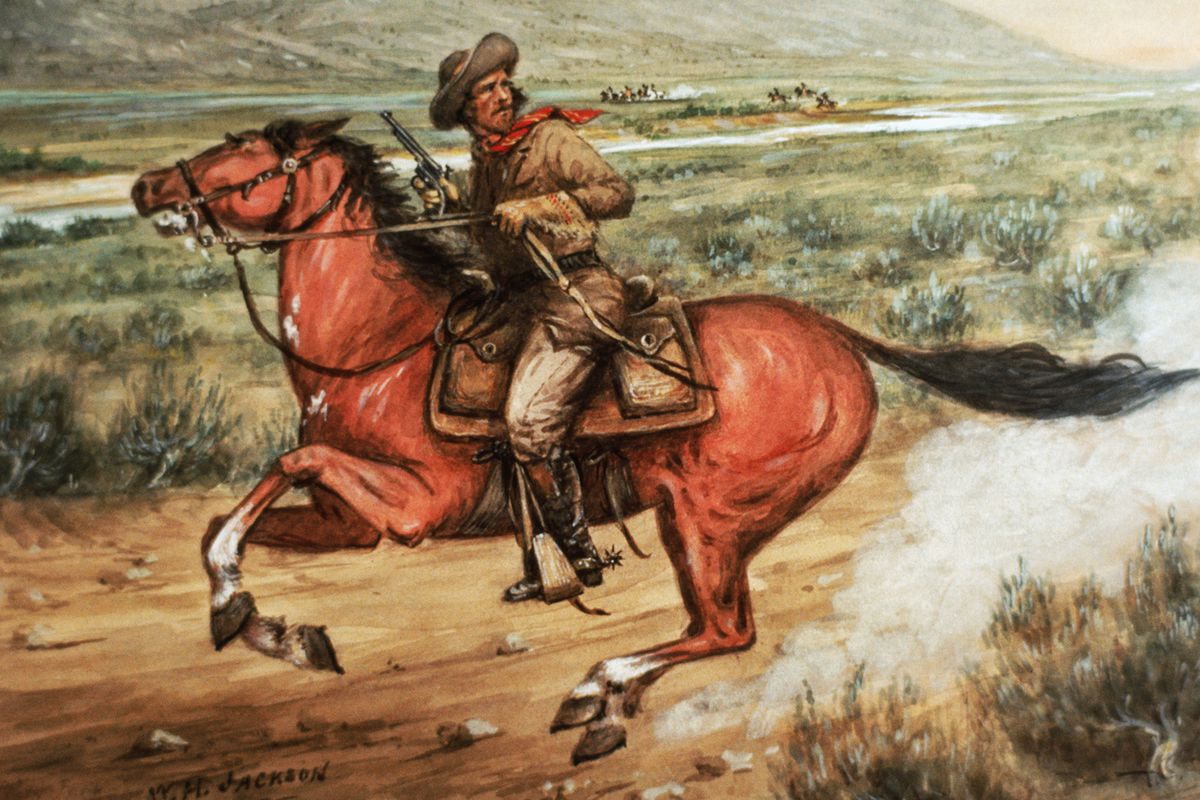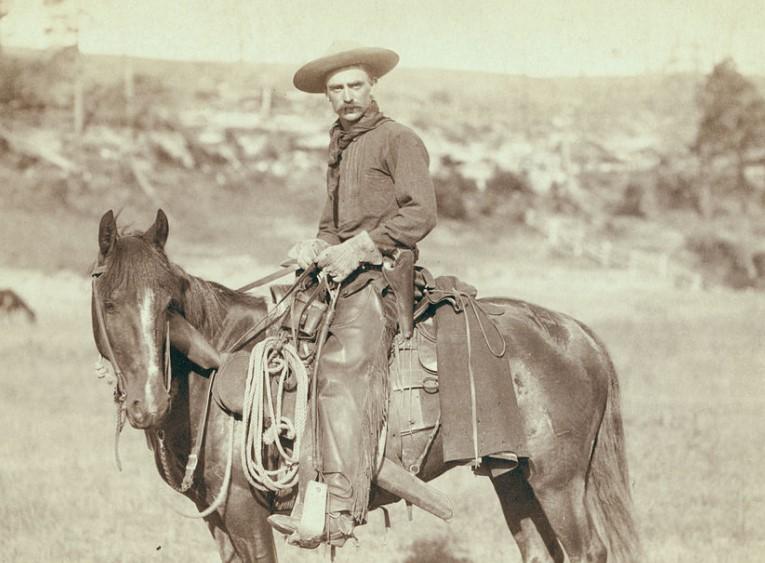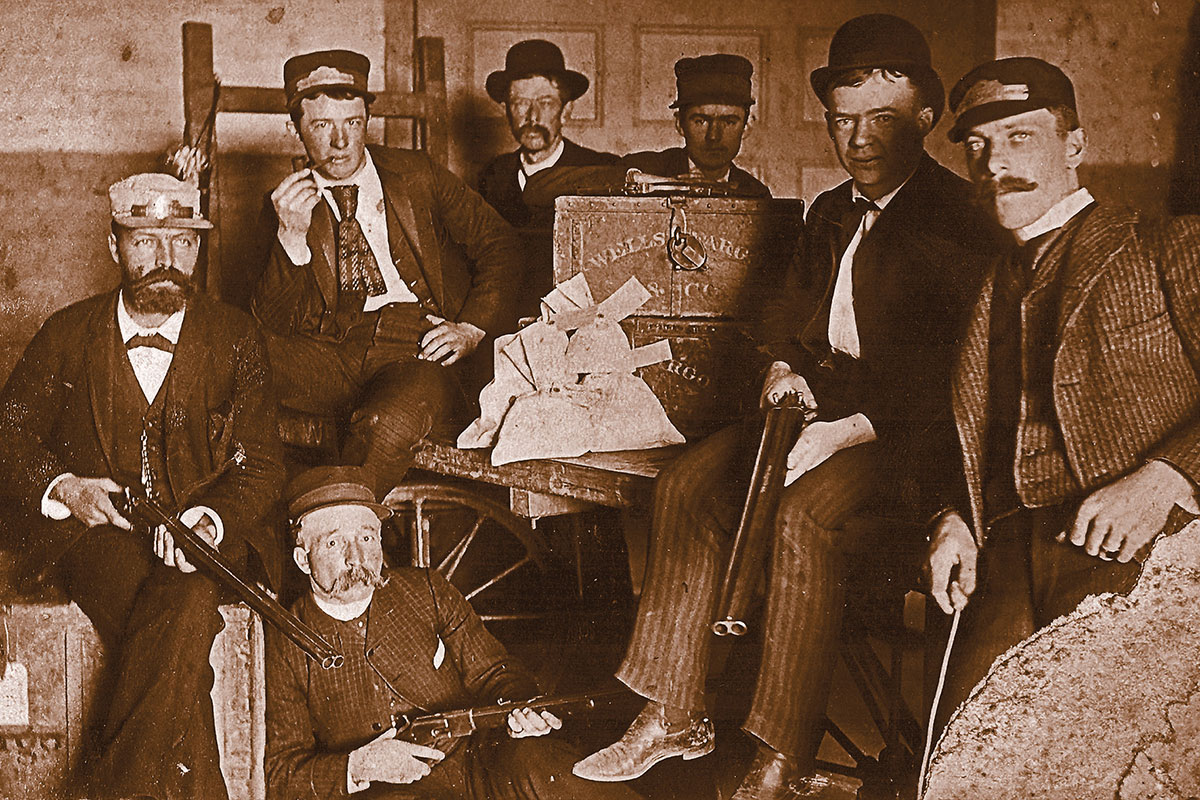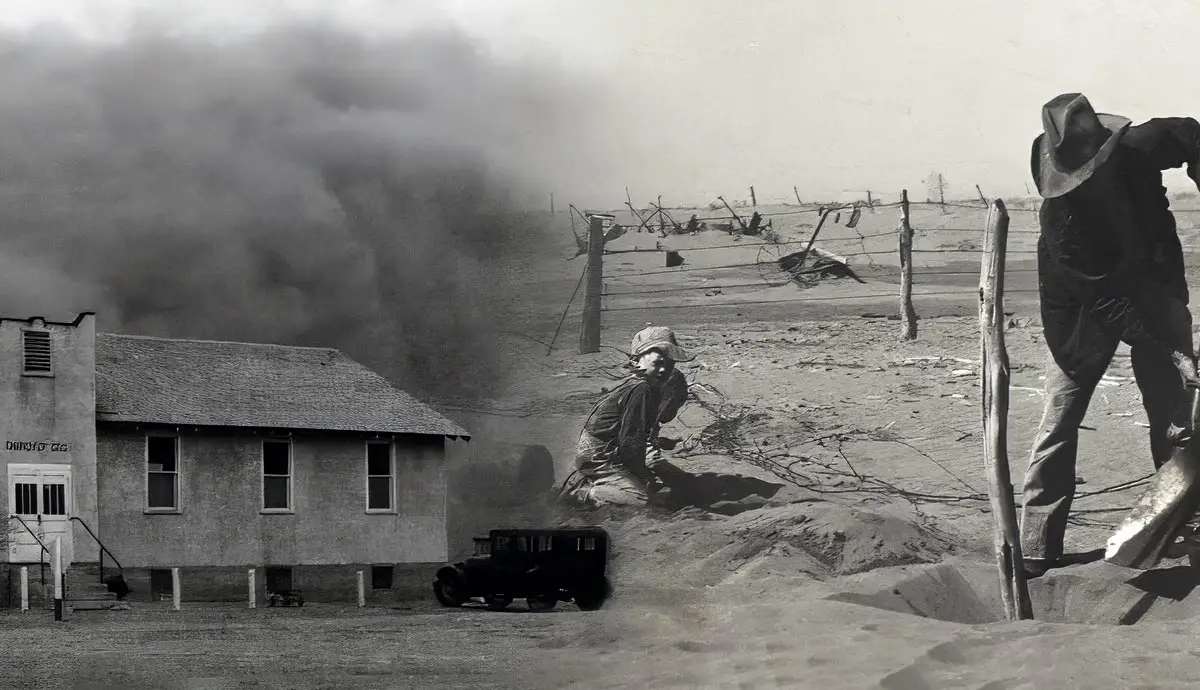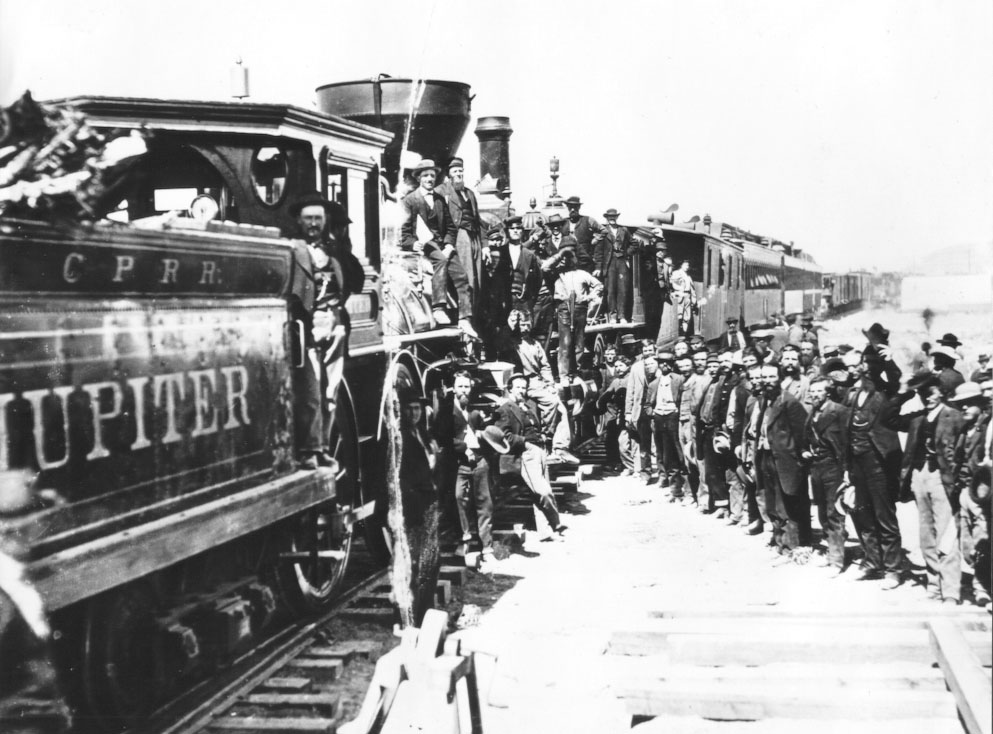Wells Fargo In The Old West
During this tumultuous era, Wells Fargo played a pivotal role in providing essential services to pioneers, miners, and settlers. Let's delve into the fascinating history of Wells Fargo in the Old West.
Author:James PierceReviewer:Camilo WoodJan 18, 202480 Shares11.3K Views
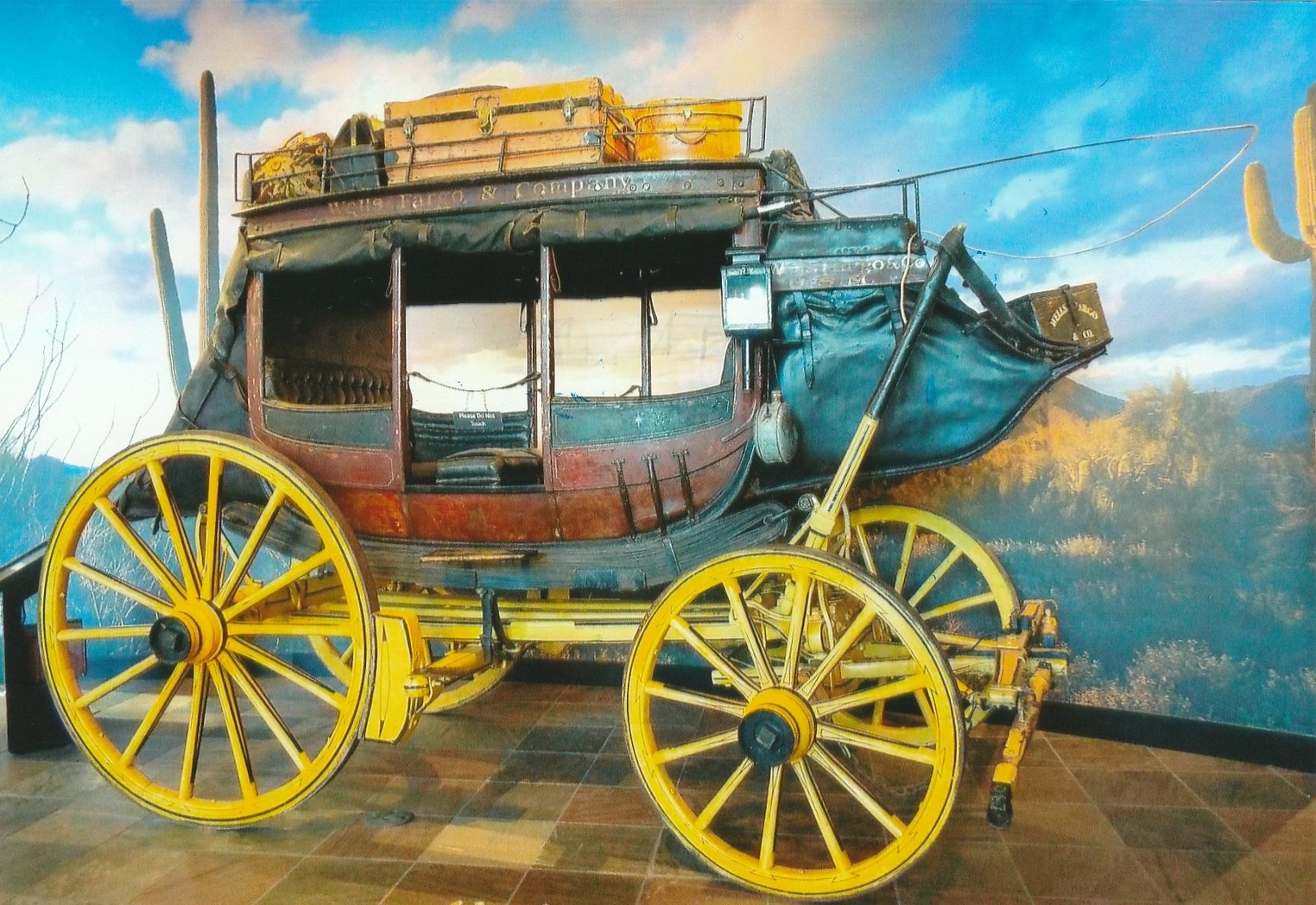
Wells Fargo, a name synonymous with banking and financial services today, has deep roots that stretch back to the rugged landscapes of the Old West. During this tumultuous era, Wells Fargo played a pivotal role in providing essential services to pioneers, miners, and settlers. Let's delve into the fascinating history of Wells Fargo in the Old West.
Origins And Gold Rush Ventures
Wells Fargo's inception in 1852 marked the onset of an entrepreneurial journey fueled by the fervor of the California Gold Rush. The visionary duo of Henry Wells and William G. Fargo established the company with a distinctive focus on meeting the escalating demand for secure and efficient transportation of gold and valuable goods. The sprawling landscapes of the Old West became the testing ground for their pioneering banking and express services.
Delivering To The West
The Wells Fargo Company emerged to address the specific needs of burgeoning settlements in the West. As highlighted inJohn Boessenecker's, the company positioned itself as an indispensable presence whenever a new mining camp or cattle town sprang up. The swift establishment of the company's headquarters on Montgomery Street in San Francisco in July 1852 marked the beginning of its ambitious plans.
Express Lines And Western Expansion
With a strategic vision, Wells Fargo laid the groundwork for a network of express lines connected to local offices, intricately weaving across the expanses of the West. The company's initial focus was on creating vital connections to major settlements in California, including Sacramento, Marysville, and Stockton. This intricate web of communication and transportation formed the backbone of Wells Fargo's operations.
Strategic Acquisitions And Banking Services
Wells Fargo's expansion involved strategic acquisitions of transportation firms, acquiring not just equipment but also solidifying its dominance in logistic routes. Beyond express services, the company recognized the pressing need for banking services in the West. Beginning with California, Wells Fargo played a pivotal role in supplying much-needed capital that fueled economic development.
Early Success And Capital Growth
In the realm of financial success, Wells Fargo proved its mettle. According to the Western Historical Quarterly, by 1859, the company had amassed a capital of $1 million. This financial prowess reflected its astute business strategies and its ability to adapt to the dynamic landscape of the Old West. Wells Fargo, in many ways, operated as an early prototype of companies like Amazon, dominating multiple industries and becoming an indispensable force in the region.
The Legacy Of The Pony Express
In the midst of an era characterized by sluggish and perilous communication, Wells Fargo emerged as a trailblazer, revolutionizing the delivery of mail and parcels. The company's contribution extended beyond conventional services, encapsulating a pivotal role in the iconic Pony Express– a daring and swift mail delivery service that traversed the vast expanse from Missouri to California.
Wells Fargo's express agents and riders evolved into legendary figures, embodying the spirit of resilience and determination as they braved harsh conditions to deliver messages and valuables.
Wells Fargo's Pioneering Express Services
Wells Fargo's foray into express services during this era was nothing short of revolutionary. Recognizing the pressing need for swift and secure communication, the company embarked on a mission to redefine the transportation of mail and valuable items.
The establishment of express lines connected to local offices allowed Wells Fargo to efficiently bridge the gaps in communication across the challenging terrain of the Old West.
The Pony Express
The crowning achievement of Wells Fargo's express services was its involvement in the Pony Express, a daring endeavor that captured the imagination of the nation.
Operating from 1860 to 1861, the Pony Express relied on a relay of riders covering approximately 1,900 miles in ten days or less. Wells Fargo's logistical prowess played a pivotal role in supporting this venture, ensuring the seamless flow of mail across the rugged landscapes that lay between Missouri and California.
Legendary Express Agents And Riders
Wells Fargo's express agents and riders emerged as larger-than-life figures in the lore of the Old West. Endowed with a sense of duty and an indomitable spirit, these individuals braved challenging weather conditions, hostile terrains, and the constant threat of outlaws. Their commitment to delivering messages and valuables in a timely manner contributed to the enduring legacy of Wells Fargo in the annals of American history.
Beyond The Mail
The Pony Express, supported by Wells Fargo, became more than a practical means of communication; it symbolized progress and the indomitable human spirit. The sight of riders galloping through the frontier, carrying the hopes and dreams of a nation, encapsulated the essence of an era marked by resilience and determination.
Safeguarding The Economic Frontier - Wells Fargo In The Old West
Amidst the economic challenges and uncertainties that characterized the Old West, Wells Fargo stood as a stalwart guardian, providing stability and financial support to a burgeoning frontier. The company's banking services became a cornerstone, offering a secure avenue for individuals and businesses to navigate the complexities of the evolving economy. Wells Fargo agents, armed and resourceful, played a pivotal role in ensuring the safe transport of money across vast and sometimes perilous territories.
Wells Fargo - The Economic Pillar Of The Old West
Wells Fargo's presence in the Old West was not merely a financial institution; it was an economic pillar that supported the growth and sustainability of frontier communities. The company strategically positioned itself in key settlements, anticipating the needs of a region grappling with economic fluctuations and the challenges of a developing landscape.
Banking Services As A Beacon Of Security
In the face of economic uncertainties, Wells Fargo's banking services emerged as a beacon of security. The company provided a reliable platform for individuals to deposit their funds, enabling them to safeguard their wealth in an era where financial stability was far from guaranteed. Moreover, businesses found in Wells Fargo a partner for obtaining loans and conducting essential financial transactions that fueled economic development.
Armed And Resourceful Agents - Guardians Of Wealth
Wells Fargo agents, adorned with a sense of duty and armed with resilience, became the guardians of wealth in the Old West. Operating in territories fraught with dangers, these agents were not only financial stewards but also protectors of the assets they transported. The iconic image of a Wells Fargo stagecoach, guarded by armed agents, symbolized not just the transport of money but the commitment to safeguarding the economic well-being of the communities it served.
Navigating Perilous Territories
The territories traversed by Wells Fargo agents were often vast and treacherous. From unforgiving deserts to dense forests, agents faced the elements and potential threats from outlaws. The success of Wells Fargo in ensuring the safe transport of money lay in the combination of strategic planning, vigilance, and the unwavering dedication of its agents.
Wells Fargo's Enduring Impact
As the Old West grappled with economic upheavals, Wells Fargo's stabilizing influence reverberated across the frontier. The company's commitment to financial security and the safe transport of wealth contributed to the resilience of the economic fabric of the Old West. Wells Fargo became synonymous not just with banking but with the unwavering support that communities needed to thrive in an environment where challenges were as vast as the landscapes they inhabited.
Challenges And Adventures Of Wells Fargo Agents
In the annals of the Old West, Wells Fargo agents transcended their roles as mere bankers; they were true adventurers and problem solvers. Operating in remote and often lawless territories, these agents faced a relentless onslaught of challenges, navigating a world where the constant threat of bandits and outlaws was an ever-present reality.
The stories of stagecoach robberies and the daring pursuits by Wells Fargo agents have become iconic tales, epitomizing the indomitable spirit of those who ventured into the heart of the frontier.
Beyond Banking - The Wells Fargo Agent's Frontier Spirit
Wells Fargo agents were not confined to the confines of a traditional banking role. They were individuals of remarkable courage and resourcefulness, facing a spectrum of challenges that extended far beyond the counting of money. Operating in territories where law enforcement was scarce, these agents became the first line of defense against the perils that lurked in the vast expanses of the Old West.
Constant Threats - Bandits And Outlaws
The life of a Wells Fargo agent was fraught with danger. The vast, untamed landscapes provided ample hiding spots for bandits and outlaws, who saw the transport of money as an irresistible target.
Agents had to be ever-vigilant, prepared to defend both themselves and the valuable cargo they transported. The tales of shootouts and daring pursuits through desolate terrain underscore the challenges these agents faced in safeguarding the economic lifelines of frontier communities.
Iconic Tales - Stagecoach Robberies And Daring Pursuits
The stories of stagecoach robberies have become legendary, weaving a tapestry of daring escapades that defined the Old West. Wells Fargo agents, armed and resolute, engaged in high-stakes pursuits to recover stolen funds and apprehend criminals.
These narratives, passed down through generations, capture not only the audacity of outlaws but also the unwavering determination of Wells Fargo agents to uphold justice in the midst of chaos.
Legacy Of Stagecoaches And Express Wagons
In the dusty trails and mountainous terrains of the Old West, the distinctive red and gold stagecoaches of Wells Fargo emerged as symbols of reliability and progress.
These rugged vehicles were more than modes of transport; they were lifelines connecting settlements and facilitating trade in an environment where infrastructure was limited. The legacy of Wells Fargo's stagecoaches is etched in the collective memory of the Old West, a testament to the pivotal role they played in shaping the frontier narrative.
Symbolizing Progress - Red And Gold Stagecoaches
The red and gold stagecoaches of Wells Fargo were not merely conveyances; they symbolized progress and the spirit of resilience.
These eye-catching vehicles traversed treacherous trails, forging paths through rugged landscapes and challenging conditions. As they rolled into settlements, they brought with them not just money but the promise of connectivity and economic vitality.
Connecting Communities - Rugged Vehicles, Enduring Legacy
Wells Fargo's stagecoaches formed an integral part of the economic network of the Old West. They connected communities, enabling trade and commerce to flourish in regions where isolation was a constant threat.
The enduring legacy of these rugged vehicles is a testament to the instrumental role they played in shaping the economic and social fabric of the frontier.
Enduring Through Economic Turmoil
Wells Fargo's journey through history is marked not only by the resilience of its stagecoaches but also by its ability to weather economic storms.
The Great Depression, an era of unprecedented economic hardship, tested the mettle of Wells Fargo. However, the bank's commitment to its customers and its innovative approach to challenges allowed it to emerge stronger from the turbulent times.
Adapting Services To Evolving Needs
In the face of economic turmoil, Wells Fargo exhibited a remarkable capacity to adapt. The bank redefined its services, recognizing the evolving needs of the communities it served. Whether through innovative financial solutions or a renewed commitment to customer care, Wells Fargo demonstrated a resilience that mirrored the enduring spirit of its iconic stagecoaches.
Commitment To Customers And Innovative Solutions
Wells Fargo's enduring strength lies not just in its financial prowess but in its unwavering commitment to customers.
During the Great Depression, the bank stood as a pillar of support, offering innovative solutions to alleviate the hardships faced by its clientele. This commitment not only ensured the survival of the bank but also fostered a sense of trust and loyalty that has endured through the decades.
Evolution And Transformation - Wells Fargo In The 20th Century
As the dust settled on the Old West and a more settled society emerged, Wells Fargo faced the winds of change with adaptability and foresight. The company, synonymous with stagecoach operations during the frontier era, transitioned seamlessly to modern banking services, leaving an indelible mark on the financial landscape.
The experiences and lessons gained during the Old West era became the bedrock upon which Wells Fargo would build its future success.
From Frontier To Financier
The decline of the Old West ushered in a new chapter for Wells Fargo. The company, once intricately tied to the stagecoach operations that crisscrossed the frontier, underwent a metamorphosis.
Embracing the changing circumstances, Wells Fargo expanded its services beyond the confines of the frontier, positioning itself as a formidable player in the evolving world of modern banking.
Transition And Flexibility
Wells Fargo's evolution was not without challenges. Technological advancements and the establishment of a more connected political landscape led to a decline in the traditional role the company played in the Old West.
In 1895, Wells Fargo relinquished its role in mail delivery, marking the end of its competition with the U.S. Postal Service. The famous stagecoaches also faced obsolescence as the railroad network expanded across the West. Yet, the company showcased remarkable flexibility, evident in the establishment of 6,300 offices by 1909.
Embracing Change - Banking And Beyond
By the early 20th century, Wells Fargo had not only adapted to change but actively sought new avenues for growth. The company expanded its banking business and embraced innovations like refrigerated train cars for transporting meat to markets. The transformation was palpable as Wells Fargo diversified its operations while staying true to its core principles of financial service and adaptability.
Banking And Express - A Forced Split
The turning point came when Wells Fargo's banking and express divisions faced a forced separation in the early 20th century.
In 1918, responding to the changing landscape and under government pressure, Wells Fargo and other express companies were compelled to form the government-run American Railway Express Agency. This marked a significant departure from the integrated banking and express operations that had characterized Wells Fargo's approach.
The American Railway Express Era
The government-run American Railway Express Agency endured until 1975, fundamentally altering the landscape of express services. Wells Fargo, now navigating a more regulated environment, continued to evolve, showcasing its ability to adapt to the ever-shifting dynamics of the financial and logistical arenas.
As the Old West gave way to a more settled society, Wells Fargo adapted to changing circumstances. The company transitioned from stagecoach operations to modern banking services, expanding its footprint beyond the frontier. The lessons learned and experiences gained during the Old West era shaped Wells Fargo's identity and laid the foundation for its future success.
Wells Fargo - FAQs
What Did Wells Fargo Do In The Wild West?
In the Wild West, Wells Fargo played a multifaceted role as a key financial institution and express service provider.
The company provided essential banking services, including deposit-taking, loan facilitation, and money transfer, catering to the financial needs of individuals and businesses in the frontier. Additionally, Wells Fargo operated stagecoaches that transported people, goods, and valuables across the challenging and often lawless territories of the Wild West.
The company's express services, including the famous Pony Express, were vital for timely communication and transportation of goods in an era where infrastructure and communication networks were limited.
What Did Wells Fargo Do In The 1800s?
In the 1800s, Wells Fargo established itself as a prominent financial and express services company. Founded in 1852, the company's initial focus was on providing secure and efficient transportation services during the California Gold Rush. It quickly expanded its operations to include banking services, becoming a vital institution in the development of the American West.
Wells Fargo operated stagecoaches, express wagons, and later, the Pony Express, facilitating the movement of people, goods, and information across vast and challenging territories. The company's presence in the 1800s marked a crucial period of growth and innovation in the context of the expanding frontier.
Did Wells Fargo Own Stagecoaches?
Wells Fargo did own and operate stagecoaches during the 1800s. The distinctive red and gold stagecoaches of Wells Fargo became iconic symbols of the company's presence in the Old West.
These stagecoaches were instrumental in transporting passengers, mail, and valuable goods across the vast and often treacherous landscapes of the frontier. Wells Fargo's stagecoach operations were a crucial aspect of its express services, ensuring the secure and timely transport of people and cargo in regions where traditional transportation infrastructure was limited.
Conclusion
Wells Fargo's presence in the Old West was more than a financial institution; it was a key player in the narrative of westward expansion and the development of a new frontier. The tales of stagecoach journeys, Pony Express riders, and resilient Wells Fargo agents form a captivating chapter in the history of both the bank and the Old West. As we reflect on this era, we recognize the enduring spirit of Wells Fargo that has transcended time and continues to be a significant force in the world of finance.
Jump to
Origins And Gold Rush Ventures
The Legacy Of The Pony Express
Safeguarding The Economic Frontier - Wells Fargo In The Old West
Challenges And Adventures Of Wells Fargo Agents
Legacy Of Stagecoaches And Express Wagons
Enduring Through Economic Turmoil
Evolution And Transformation - Wells Fargo In The 20th Century
Wells Fargo - FAQs
Conclusion

James Pierce
Author

Camilo Wood
Reviewer
Latest Articles
Popular Articles
